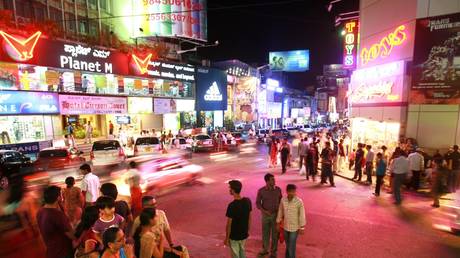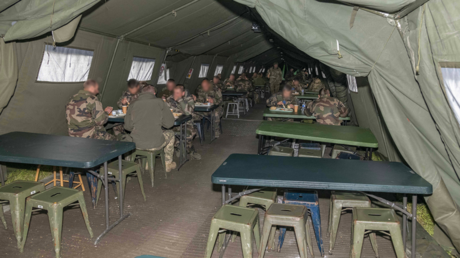Asmara, 05 January 2025 – International Conference on Eritrea Studies opened yesterday at Asmara Palace Hotel under the theme “International and Regional Cooperation for Sustainable Development.”
The opening ceremony was attended by Ministers, senior Government and PFDJ officials, Ambassadors, members of the diplomatic community, heads of UN agencies in Eritrea, scholars, professionals, and invited guests.
Dr. Halima Mohammed, chairperson of the conference’s coordinating committee, noted the growing interest among scholars and practitioners in researching and publishing on Eritrea. She emphasized that investment in research and education is fundamental to all development efforts. The conference aims to facilitate academic exchange, foster collaboration, and promote a deeper understanding of Eritrea’s role in regional peace and stability, as well as its contributions to global sustainable development.
In his keynote address, Mr. Yemane Gebremeskel, Minister of Information, said that the research papers, on a broad spectrum of themes, slated for discussion during the next three days will immensely enrich development oriented academic research in the country. Furthermore, Minister Yemane emphasized that another invaluable spinoff of this conference will be its impact and contribution in debunking and rectifying the stifling, negative narrative, on Eritrea that has been pursued, for almost two decades now without let-up, by major legacy media outlets and associated think tanks.
Regarding the current global situation, Minister Yemane underscored that it is very turbulent and trying times, by all historical metrics. The global security structure is literally under unprecedented and dangerous stress.
The so-called civilized, technologically advanced, post-industrial world has been spared from another global conflagration in the past eighty years; this was not due to some higher moral calling, statesmanship, or wisdom. It was not based on a judicious architecture of global governance. Sadly, Minister Yemane went on to say that the fragile peace was, and remains predicated, on a raw and crude balance of terror. Due to what is termed as Mutually Assured Destruction or MAD as the acronym cynically suggests.
Minister Yemane underlined that the nuclear powers did not enjoy the privilege of success in annihilating their adversaries through pre-emptive first strikes. It was this binary balance of terror that constituted, for the last eighty years, the sole and primary basis of deterrence and fragile peace. Tactical and political brinkmanship and posturing aside, there are worrying signs now that this paradigm might shift for the worst. Some, worst-case analysts are even invoking what is known as the Thucydides Trap to emphasize historical precedents for the high probability of the outbreak of war in this period of global transition of hegemony.
Noting that all these aberrations, in the security, legal and economic global architectures of governance, are occurring at a time when technological advancement has achieved unprecedented progress in all its dimensions, Minister Yemane said that the disconnect between reality and what is possible and desirable, remains immensely and absurdly huge. Humanity can indeed work out a viable and sustainable global system that can advance human dignity under a common Global Social Contract of compassion, fairness, and solidarity and that is arguably cherished by the vast majority of the peoples of the world.
Regarding Eritrea’s consistent stance, Minister Yemane reiterated that for reasons of history, geographic proximity, pragmatic calculus, and other cogent considerations, Eritrea’s policy perspectives on continental African cooperation and partnership are primarily predicated on a modular approach. This policy perspective was first articulated at the OAU Summit held in Tunis in 1994.
In Eritrea’s views, while the aspirations for fostering continent-wide institution of African effective cooperation is laudable in terms of broad abstract principles, realism dictates that this is implemented – over a long span of decades – through the establishment and consolidation of regional building blocks.
Minister Yemane further underlined that debilitating dependency on, and entrenched tendencies and proclivities to act as surrogates of global and regional hegemony, have also encumbered independent and home-grown development policies and options. Ill-advised ambitions of territorial aggrandizement and expansion, often induced by overriding external agendas, have and continue to constitute avoidable factors of additional regional destabilization; thereby compromising the national and regional interests of the nations and peoples of the Horn of Africa.
Highlighting that Eritrea’s endowments are substantial by all standards, Minister Yemane said that the blue economy consisting of considerable marine resources; locational advantages; ports as well as pristine beaches and islands can be leveraged to catalyze and expedite rapid economic growth under conditions of congenial regional peace and stability.
In his closing remarks, Minister Yemane emphasized that Eritrea’s Social Contract, hinged as it is on comprehensive Social Justice, does not stem from a humanistic philosophical and political convictions alone. Embedded in the philosophy is the keen and implicit tribute to, and recognition of, Stakeholder rights; the additional acknowledgement that Eritrea is a nation whose citizens have all paid heavy and almost unparalleled sacrifices to assert and defend their inalienable human and national rights. As such, they deserve their proper share in the national pie.
Minister Yemane also expressed his expectation that the Conference will address all these interrelated themes in greater depth in its proceedings in the next three days.
At the conference that will continue until 6 January 154 research papers will be presented including on natural and social science, agriculture and natural resources, archeology and national heritage, Diaspora opportunities and challenges, economic development, environment and climate change, language and linguistics, law, politics and regional and global issues, science and technology as well as folklores and music. 70 of the research papers will be presented by Eritrean experts from inside the country and abroad.
By its second day of the conference, over 95 research papers have so far presented by various academicians and professionals in their respective fields of profession.
Academicians, experts and researchers from Germany, Italy, the UK, People’s Republic of China, Russian Federation, Hungary, India, Egypt, Uganda, Somalia, the US, Canada and others are attending the conference.




+ There are no comments
Add yours